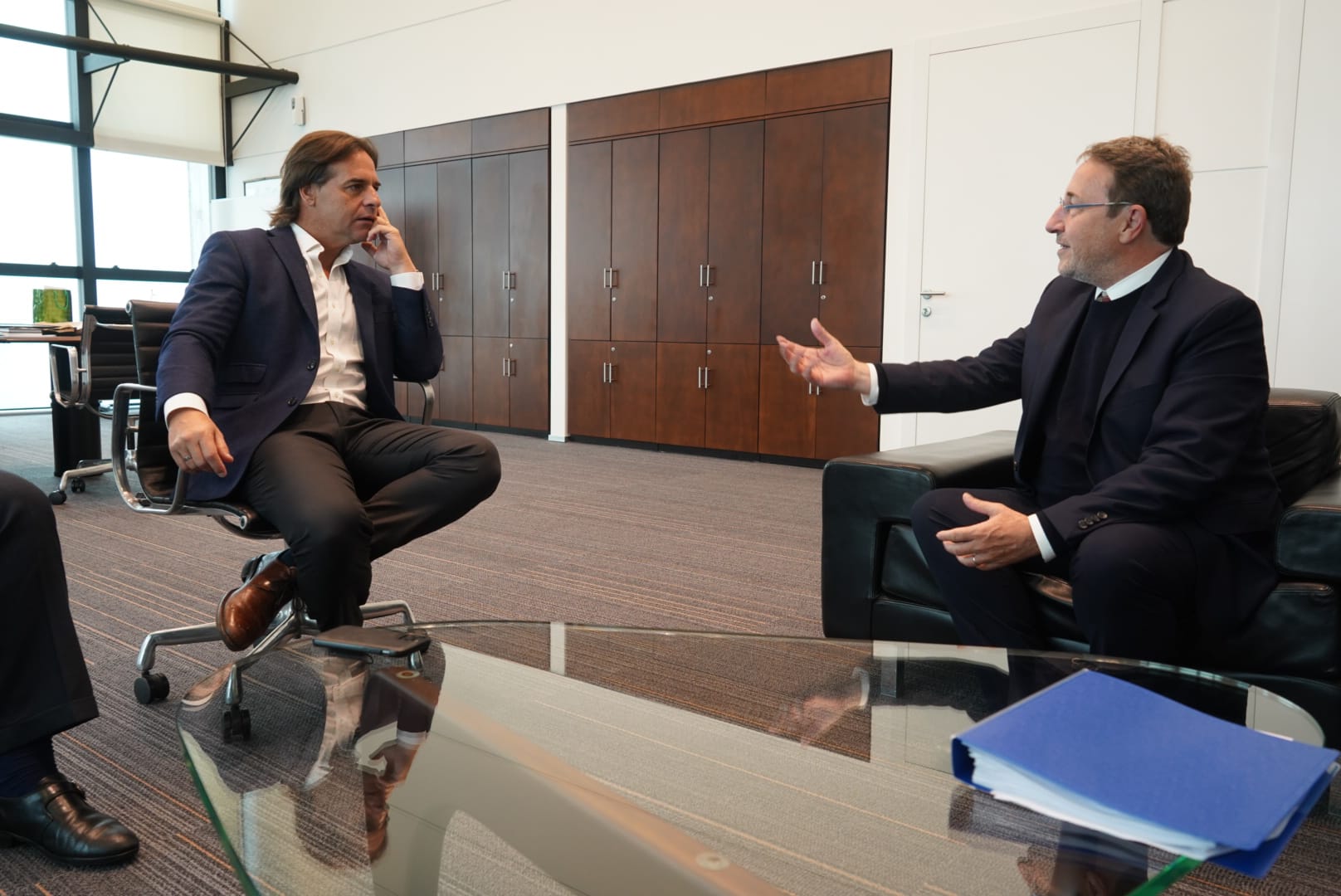Uruguay sets its Sights on a Green Future after COVID-19
June 28, 2022

UNDP Administrator, Achim Steiner meets with President Luis Lacalle Pou
Uruguay, a country of some 3.5 million people, stands out in Latin America for its low levels of poverty and inequalities, founded upon a commitment to shape a more equal society. Meeting with President Luis Lacalle Pou and three of the country’s former Presidents – Luis Alberto Lacalle Herrera, Julio María Sanguinetti and José Mujica- on an official visit to Uruguay, the Administrator of the United Nations Development Programme (UNDP), Achim Steiner, accompanied by UNDP’s Regional Director for Latin America and the Caribbean, Luis Felipe López-Calva and UNDP Resident Representative in Uruguay, Stefan Liller, highlighted how Uruguay’s focus on building trust between institutions and citizens in service of inclusive human development and environmental protection can inspire other countries around the world.

UNDP Administrator, Achim Steiner meets with Former President Julio María Sanguinetti
Since its transition to a democracy in 1985, Uruguay’s leadership has been resolutely committed to a politics of consensus and active collaboration for its people. Laying the foundations for transparent and accountable institutions early on, Uruguay ensured that economic progress went hand-in-hand with measures that advance human development while using resources sustainably and protecting nature. Indeed, Uruguay's National Constitution explicitly recognizes the importance of environmental protection. Between 1990 and 2019, the country's Gross National Income (GNI) per capita increased by some 104.3%. Advancements in health and education also ensured that Uruguay now ranks ‘very high’ on the Human Development Index -- positioning it at 55 out of 189 countries and territories. The country has also set climate action as a key national development priority, making significant strides in shifting to renewable energy (97% of its electricity now comes from renewable sources); investing in low-carbon mobility; and setting ambitious targets in its climate pledge, or Nationally Determined Contribution.
“Transparent and effective governance stems from the confidence of its people -- Uruguay’s remarkable development advances over the past three decades are a testament to the quality and competency of its institutions.,” said Achim Steiner. “It demonstrates how progress cannot be merely measured through increases in Gross Domestic Product (GDP) -- it must be reflected in the wellbeing of citizens and the health of the country’s natural capital.”
When the COVID-19 pandemic struck, Uruguay was well placed to respond to the virus’ unprecedented threat. Relying on its strong healthcare system, accessible social security systems and an early and effective vaccination campaign, Uruguay was able to respond quickly to the pandemic. Importantly, state institutions seized the opportunity to expand the use of digital technology, helping to manage the social and economic impacts. For instance, throughout the pandemic, the Integral Risk and Affectations Monitor, developed by UNDP together with the country’s National Emergency System, helped to track its evolution. Widespread access to the internet also allowed more than three-quarters of students to stay connected to a national online learning platform. With this basis, the economy grew by 4.4 % in 2021, and is poised to keep rising in 2022.

UNDP Administrator, Achim Steiner meets with Former President Luis Alberto Lacalle Herrera
However, many emerging challenges lie ahead. Uruguay’s economy is strongly driven by its agricultural sector, with products such as meat, dairy, rice and others making up nearly 80% of its exports. The government is now keen to diversify. Speaking at the Futures Commission of the National Parliament, Steiner underscored how a green growth model, supported by digital innovation, is the need of the hour. “Business as usual is no longer an option and we cannot fall into the old trap of putting the economy first and the planet second, “said Steiner. “We need new skills and creative solutions that recognize the interconnectedness of the different crises and work across them to advance the Sustainable Development Goals (SDGs).”
Steiner and Martin Lema, Minister of Social Development, also interacted with students who are upskilling themselves in cutting-edge digital programming at the ANIMA Technological Baccalaureate, which provides vocational training in administration and ICT while supporting students to continue with their higher education.

UNDP Administrator, Achim Steiner meets with Former President José Mujica
The United Nations, including UNDP, is committed to continue supporting Uruguay to build forward better from COVID-19; driving a transition to clean, renewable energies; supporting digital innovation and youth participation for a green economy; and unlocking new sources of finance to advance the country’s national development priorities in line with the SDGs.
“We are not starting from zero – look, for instance, to Uruguay’s Sustainability-linked Sovereign Bond, one of the first of its type in the world that will be launched later in 2022,“ noted Steiner, “These kinds of solutions will ultimately help us navigate a new socio-economic normal, helping to drastically improve the wellbeing of people and the planet.”

 Locations
Locations



